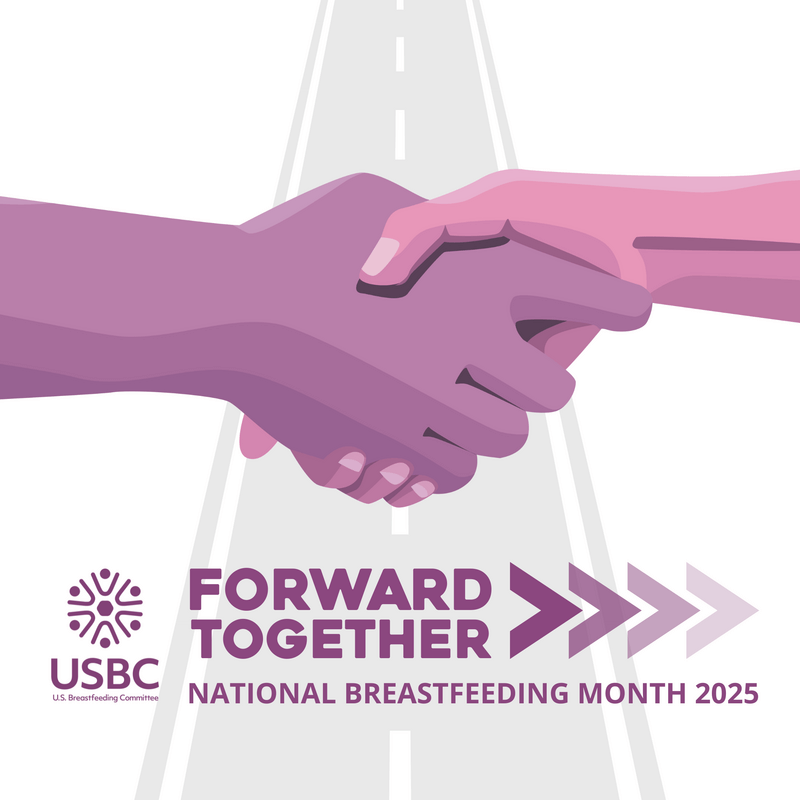National Breastfeeding Awareness Month
Support breastfeeding mothers and pregnant patients
This August, we join the U.S. Breastfeeding Committee in recognizing National Breastfeeding Month. Help us spread the word about the benefits of breastfeeding or chestfeeding, and learn how you can support mothers and pregnant patients!

CLOSING THE GAP
Ensuring ALL Families Have the Opportunity to Breastfeed
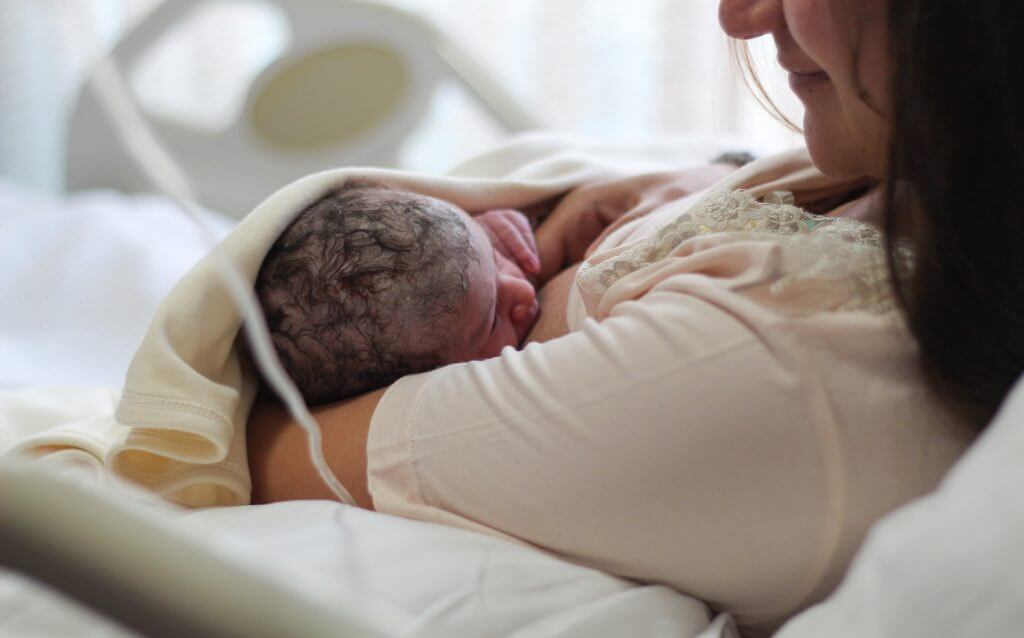
Rates of breastfeeding in the U.S. vary widely because of the multiple and complex barriers new parents face when starting and continuing to breastfeed. The American Academy of Pediatrics (AAP) recommends that infants be exclusively breastfed or chestfed for about the first 6 months with continued feeding while introducing appropriate complementary foods for one year or longer. Yet, many mothers and pregnant patients struggle to reach their breastfeeding goals, and sixty percent do not breastfeed as long as they intended to.
The AAP updated its Breastfeeding Policy Statement to call for more human milk feeding support – particularly for Black mothers and pregnant patients. They urge that implicit bias, structural bias, and systemic discrimination must be addressed in order to improve existing disparities in human milk feeding.
NICHQ INitiatives
Our Breastfeeding and Safe Sleep Work
The use of a fair and impartial lens is imperative in the work of making breastfeeding and chestfeeding a national norm. We’re grateful to have insight from a representative team of experts and people with lived experience from different backgrounds on these project-related breastfeeding and safe sleep initiatives.
Tools to Improve your Practice
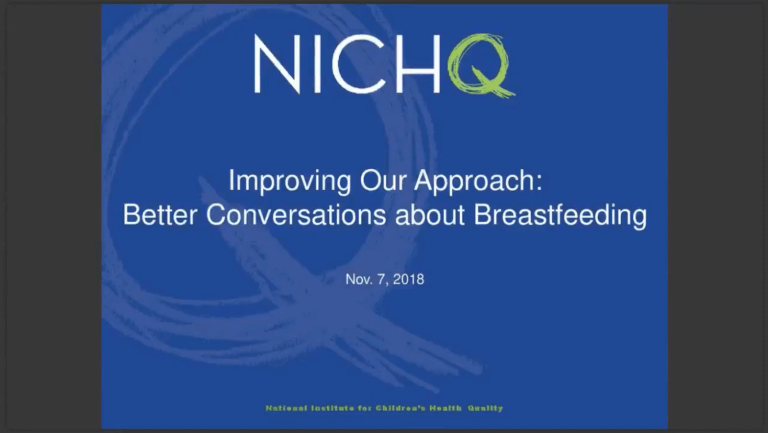
Improving Our Approach
This webinar provides approaches and strategies health professionals can use to help mothers open up about the challenges they face when breastfeeding. By understanding those challenges, we can better provide the supports they need.
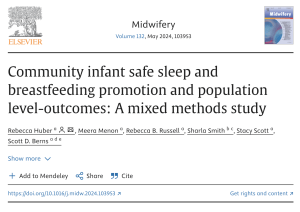
Community infant safe sleep and breastfeeding promotion and population level-outcomes: A mixed methods study
Study on community-level strategies and state-level outcomes for infant safe sleep & breastfeeding.
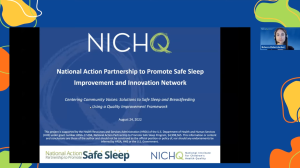
Centering Community Voices
A webinar on how NAPPSS-IIN shifts to community-driven QI for safe sleep and breastfeeding.
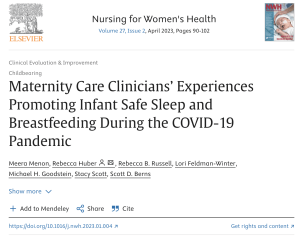
Maternity Care Clinicians' Experiences Promoting Infant Safe Sleep and Breastfeeding During the COVID-19 Pandemic
Explore clinicians’ perceptions & experiences promoting safe sleep & breastfeeding during COVID-19.
Publications
Community-based approaches to infant safe sleep and breastfeeding promotion: a qualitative study
In the U.S., sudden unexpected infant deaths (SUID) due to accidental suffocation and strangulation in bed (ASSB) are increasing, with disparities by race/ethnicity. While breastfeeding is a protective factor against infant mortality, racial/ethnic disparities are present in its uptake, and motivations to breastfeed are also often coupled with non-recommended infant sleep practices that are associated with infant sleep deaths. Combining infant safe sleep (ISS) and breastfeeding promotion on the community level presents opportunities to address racial/ethnic disparities and associated socioeconomic, cultural, and psychosocial influences.
Conclusions
Our findings support embedding risk-mitigation approaches in ISS education; relationship building between providers, clients, and peers; and the provision of ISS and breastfeeding supportive material resources with educational opportunities. These findings may be used to inform community-level provider approaches to ISS and breastfeeding promotion.
Save the Date
Weekly Observances
Five distinct weeks are celebrated during Breastfeeding Awareness Month.

NICHQ Insights
Reading List for National Breastfeeding Awareness Month
At NICHQ, we are committed to making breastfeeding and infant safe sleep the national norm. Check out our insights to learn how you can support this initiative.
NICHQ News
Stay in the Loop
Get information on observances like Breastfeeding Awareness Month and other NICHQ news delivered directly to your inbox.
Spread the Word
USBC Forward Together
The U.S. Breastfeeding Committee announced that the 2025 National Breastfeeding Month (NBM) theme is Forward Together. This year’s theme centers unity, solidarity, and hope, and celebrates the strength and determination of the organizations and advocates committed to advancing policy, systems, and environmental change to improve access to human milk.
USBC Forward Together Campaign
Support breastfeeding mothers and pregnant patients
Additional Articles & Resources
State Perinatal Quality Collaboratives
List of PQCs funded by the Center for Disease Control and Prevention (CDC)
The Power of PQCs
Video showing the impact that PQCs have on the communities they serve. Produced by the NNPQC.
PQCs in the News
Articles in news outlets covering state PQCs, their activities, and the people that work in the collaboratives.
Patient Safety Bundles
From the Alliance for Innovation on Maternal Health. PSBs are collections of evidence-informed best practices that address clinically specific conditions in pregnant and postpartum people. The NNPQC helps provide TA and support to PQCs in adopting the core AIM Perinatal Mental Health Bundle.
Perinatal Quality Collaboratives
The CDC’s landing page for PQCs, including helpful infographics, videos, and links to help explain what PQCs are, how they work, and stories, learnings, and publications that have come out of the state PQCs.







